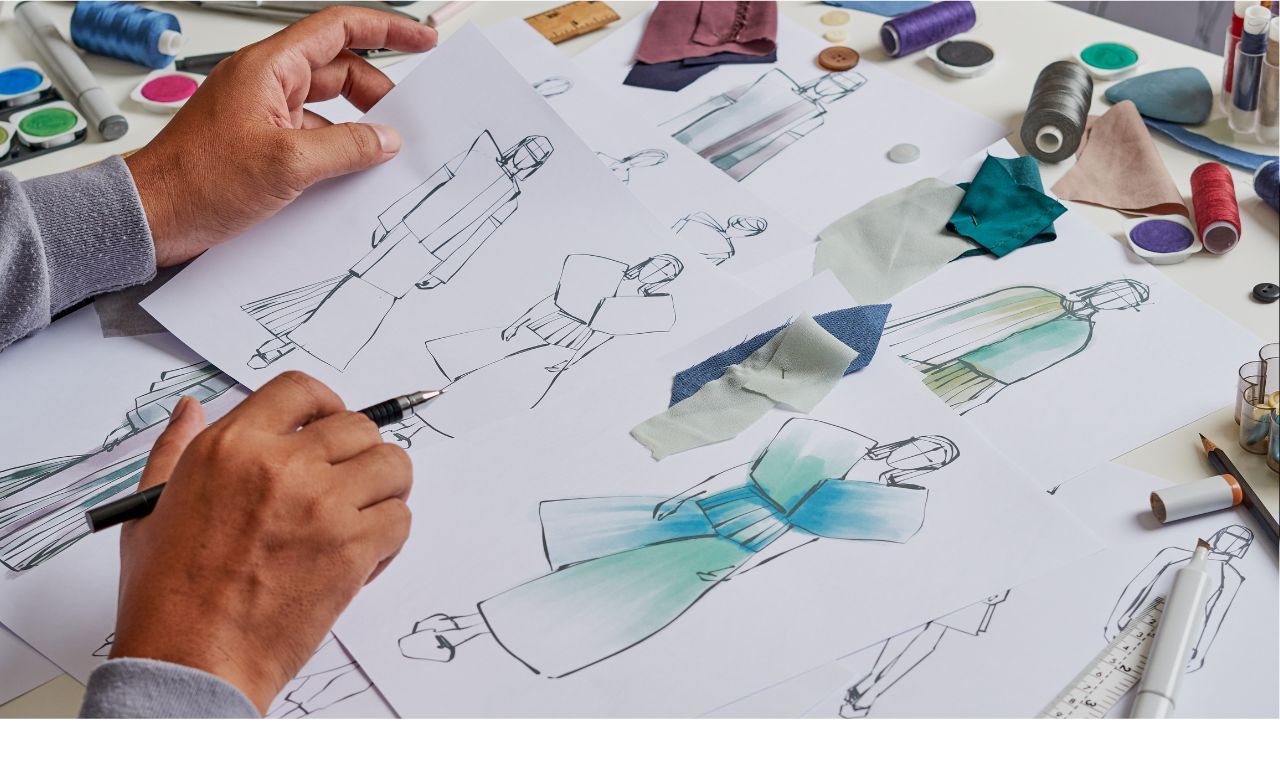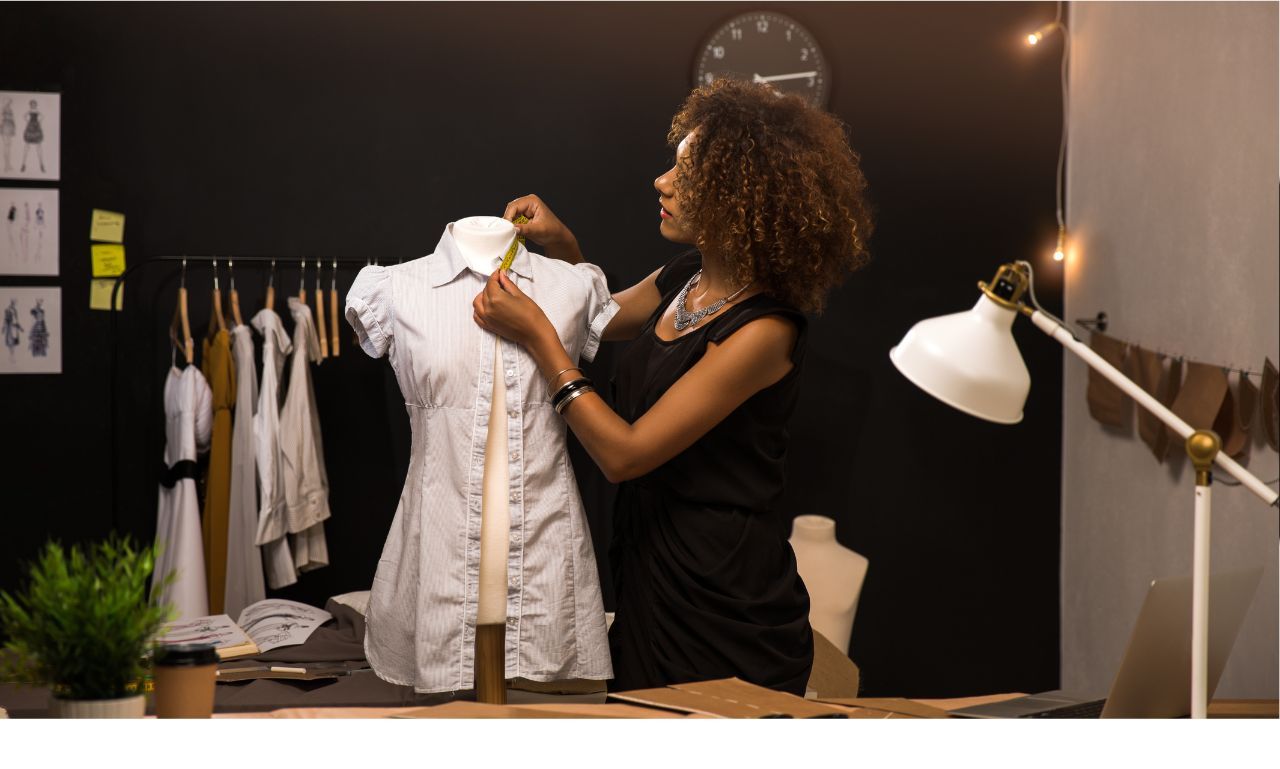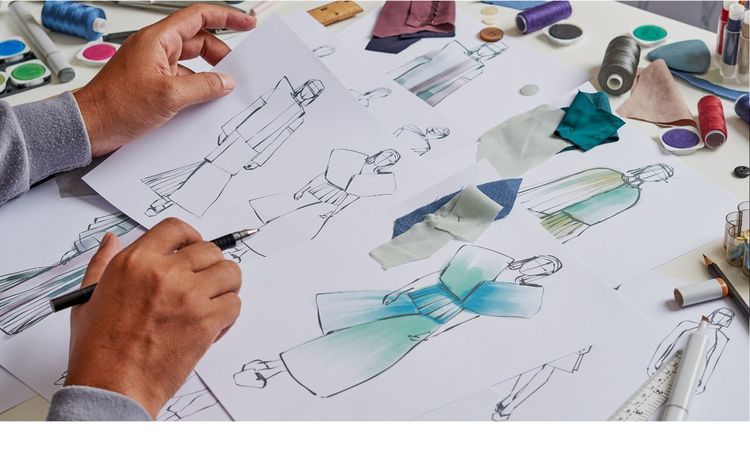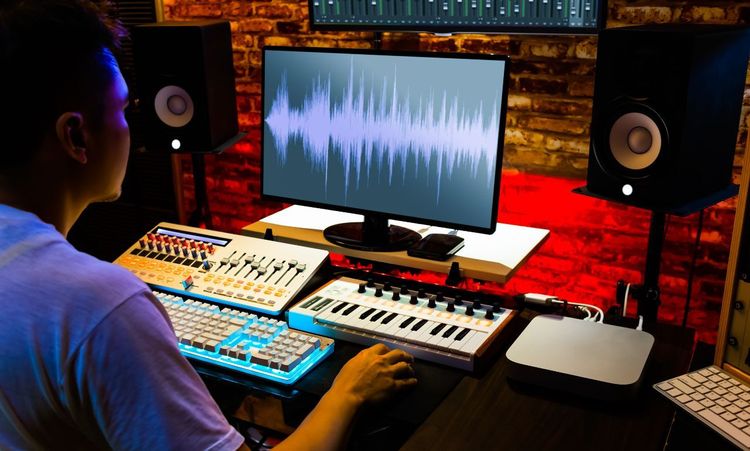Fashion design is often considered one of the most glamorous and exciting career paths. From runway shows to dressing celebrities, the fashion world is filled with creativity, innovation, and endless possibilities. But is it all glitz and glamour? Like any career, becoming a fashion designer comes with its own set of challenges and rewards. In this article, we'll explore the pros and cons of pursuing a career in fashion design, helping you decide if this is the right path for you.
What Is Fashion Designing?
Fashion designing is the art of creating clothing, accessories, and footwear that are functional and expressive of the times, cultures, and trends they represent. It involves a mix of creativity, technical skills, and business acumen. They are responsible for the entire process, from sketching initial ideas to selecting fabrics, collaborating with manufacturers, and seeing the designs come to life on the runway or store shelves.
Designers might specialize in clothing for a particular demographic or type of garment, such as evening wear, casual wear, or accessories like bags and jewelry. The job requires a blend of aesthetic talent and practical skills, such as pattern making, fabric manipulation, and understanding current market trends.
Fashion design can be pursued at many levels, from independent freelance work to joining established fashion houses. A degree in fashion design often offers a deep dive into the technical aspects, but personal flair and experience go a long way in shaping a successful career.
What are the Pros of Careers in Fashion Design?

Starting Your Own Business
Unlike many other professions, fashion design allows creative individuals to become entrepreneurs. The possibilities are endless, whether it's launching a clothing line, opening a boutique, or starting an online fashion store.
Starting your fashion brand offers complete creative control. You can curate collections that reflect your unique vision, choose the production processes, and even shape the brand's identity. When you become a business owner, you also get to decide on the marketing strategies and business model, whether selling directly to customers via social media or wholesale to larger retailers.
Having owned my own small fashion design company in the past, I can tell you that this is an enriching experience—though it's also one filled with hurdles. Managing your fashion business means wearing multiple hats and dealing with everything from design and marketing to sales and finances. But the payoff comes when you see your designs reach the hands of excited customers.
Traveling the World
Fashion is a global industry, and as a designer, you'll have the chance to travel to some of the most exciting cities in the world. From attending fashion weeks in Paris and Milan to sourcing fabrics in India or Japan, travel is often a big part of the job. These experiences not only broaden your horizons but also inspire your designs.
Meeting New and Different People
The fashion industry is a melting pot of creative minds, from designers and models to photographers and stylists. You'll be able to collaborate with talented individuals from diverse backgrounds, each bringing their unique perspective. Networking is a huge part of the job, and your connections can open doors to new opportunities.
Fun and Creative Work
Fashion designing is, at its core, a creative profession. It allows you to express your artistic vision through clothing and accessories. For people who love to create and innovate, few careers areexciting and fulfilling. You can transform an idea into a tangible product that can impact how people feel and express themselves through fashion.
Sketching, experimenting with fabrics, and envisioning the final product can be incredibly enjoyable. Whether you're designing a casual look for everyday wear or creating a couture gown, you can bring your imagination to life in a way that's visually impactful.
Decent Income Potential
While the starting salaries in fashion design can be modest, the earning potential increases significantly as you gain experience and build your reputation. Successful designers can earn substantial incomes, especially if they launch their labels or collaborate with major brands. Additionally, freelance designers have the potential to earn unlimited income, depending on their client base and projects.
Self-Satisfaction and Fulfillment
There's something incredibly satisfying about seeing your designs come to life and being worn by people worldwide. Fashion design allows you to express your creativity and make a tangible impact on the way people dress and feel. For many designers, this sense of fulfillment is worth more than any paycheck.
What are the Cons of Careers in Fashion Design?

Stress and Pressure
The fast and highly competitive fashion industry can lead to significant stress. Deadlines are tight, and the pressure to constantly innovate can be overwhelming. Whether you're working on a new collection or preparing for a runway show, the workload can be intense.
I've experienced this firsthand. During my early days as a designer, I often worked late into the night to meet deadlines. While the result was always worth it, the process was undeniably stressful.
Copying and Imitation
In an industry driven by trends, copying is an unfortunate reality. It's not uncommon for smaller designers to see their designs replicated by larger brands or fast-fashion retailers. Protecting your intellectual property can be challenging, and many designers face the frustration of seeing their hard work copied.
Dealing with Difficult Customers
Whether working with individual clients or large retailers, dealing with demanding customers is part of the job. Some clients may have unrealistic expectations or be overly critical of your work. Learning to navigate these situations while maintaining your professionalism is a skill every designer needs to develop.
Unpredictable Income
In the fashion industry, income can fluctuate significantly yearly, especially for freelancers. It can be hard to establish a stable income during the initial stages of a fashion design career, especially if you're starting out or launching a new brand. Major fashion events or collections might not always translate into high profits right away, and if your designs don't catch on, it can lead to periods of financial uncertainty.
Fierce Competition
The fashion industry is highly competitive, with thousands of talented designers competing for limited opportunities. Talent, persistence, resilience, and a bit of luck are required to break into the industry and build a successful career.
Low Starting Salaries
For many aspiring designers, the initial stages of their careers can be financially challenging. Entry-level positions often come with low salaries, and it can take years of hard work and dedication to earn a comfortable income.
Is It Worth Becoming a Fashion Designer?

It all depends on your passion, goals, and tolerance for risk. If you are the kind of person who gets high on creativity, loves challenges, and is ready to put in the hard work, then fashion design can be very rewarding. However, it is crucial to go into it with your eyes wide open, understanding the challenges and sacrifices involved.
Doing fashion design has been one of the best decisions I have ever made, though at times it's challenging. It has been worth every late night and stressful moment having an opportunity to express my creativity and make a living doing what I love.
Conclusion
The profession of a fashion designer is a blend of artistic talent with commercial sense, technical ability, and a dash of perseverance. On the one hand, fashion provides the gratification of individualistic expression, traveling, and people. It involves stress, competitiveness, and often insecure finance on the other side. Therefore, be fully informed about what awaits you: not only fun times but also less glamorous parts. Fashion can be a very rewarding career for those who truly have a passion for design and are willing to put in the work that it takes. From working for a major fashion house and starting their own brand to working as a freelance designer, the potential for success in the fashion industry is boundless.




